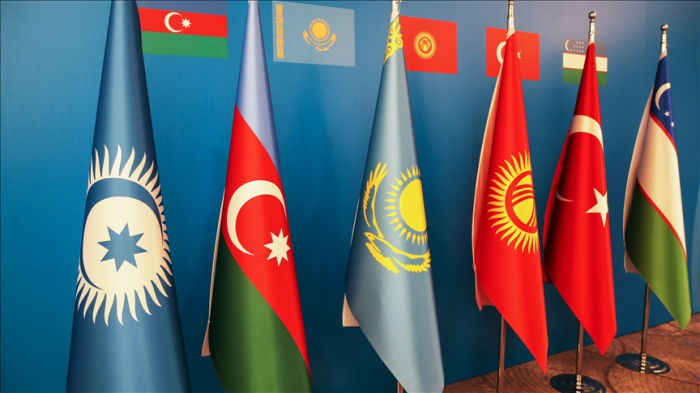'Historians worldwide tend to speak more of Turks’ bellicosity and military prowess. Their intellectuality and scientific contributions are usually side-lined, whereas the Turkic literature, thinking and wisdom have played an exceptional role in universal civilization.’
AzVision.az talked to Roida Rzayeva, Doctor of Philosophy, head of department for history and theory of oriental studies at the Institute of Oriental Studies named after Ziya Bunyadov at Azerbaijan National Academy of Sciences.
She debates that Oriental (Islamic East) and Western worlds of thinking have always fed on each other at different levels. Many thinkers were born into and grew in the Islamic East, who later influenced both the Islamic and European worlds of thought with their discoveries and ideas:
‘A large portion of Greek philosophical and scientific heritage was lost in the West between the fall of the Roman Empire and the cultural Renaissance of the 13th-14th centuries. While philosophy, science and art experienced a period of stagnation in Medieval Europe, the Islamic East never stopped developing culturally. Muslim thinkers kept true to their own philosophy, but also preserved and developed the Greek philosophical thought. The academic growth in the Muslim East became an impetus for developing scientific thinking in Western Europe.
Turkic thinkers comprised a significant part of the Muslim Eastern world of thought. Mawlana, a crucial part of Turkic cultural heritage, became a symbol of humanism, with his scientific and wise contributions into the universal culture. His philosophical concepts still inspire pondering to this day. While speaking of his Turkic origin and love for Turkism, Mawlana would say: ‘Aslen Türkest eğerçi Hindu guyem’ (Although I speak Persian, my origin is Turkic). Overall, Arabic was ‘the language of science’, Persian ‘the language of literature’ and Turkic was ‘the language of the people’ in the Middle Ages. Therefore, while people who contributed to science and culture were of Turkic origin, the work they produced was either in Persian or Arabic.’
- What would you say about the role of the Turkic peoples in the development of scientific thinking and ideas that lay the foundation of modern civilization?
‘The Turkic thinkers and their legacy that have influenced the intellectuality of a large portion of the world have been historically developed and embodied in the scientific thinking that constitute the cornerstone of modern civilization. The foundation for tolerance and multiculturalism – considered among the main ideas and universal values of the modern age – are also based on the heritage left by Turkic thinkers: ‘Yine de gel… Yine de gel! Ne olursan ol, yine de gel! Hıristiyan, Mecusî, putperestolsan yine de gel...’ said Mawlana. (Come anyway… Come! Whatever you are, still come! Even if you are a Christian, Magus, or a pagan, still come…) His philosophy is still relevant today. His messages of life are still considered contemporary.
Yet another Turkic thinker who epitomized the important values and ideas of humanity, YunusEmre’s views still resonate with the criteria of the contemporary world: ‘Love the created, respect the creator’, he said.
We can thus conclude that we have inherited many notions introduced by Turkic thinkers and they have facilitated shaping the thinking and ideas that are typical for the modern age.’
- What is the influence of the Turkic factor in transforming Islam into a global religion?
‘Turks have played a tremendous role in expanding the Muslim footprint. Islamic civilization was shaped in the Eurasian ethno-geographical region. Turkic peoples had settled in the Great Steppe. They managed to preserve both their ethno-cultural features and Turkic identity.
At the same time, Turkic scientists and thinkers focused on not only the territories of their historic settlement, but also in Baghdad – both the developed city and the centre for science and culture at the time. European researchers note that most of the thinkers gathered in Baghdad were of Central Asian origin.
Turks (Seljuk Turkmens, Ottomans, Crimean Tatars, Chagatai Turks, etc.) have also played a role in the Islamization of the population and strengthening Islam in India, Asia Minor, the Balkans, and the Caucasus. Turkic states took on the leading role in the Muslim world as of 11th century. Since the 10thcentury the Turkic people have contributed greatly into strengthening the foundations of Islam, increasing humane and material resources of the Islamic civilization, and spreading Islam all over the world.
Introduction of Islam and Turkification of the local population at certain periods expanded the horizons in ethnic and ethnopolitical processes. This, in turn, has led to the expansion of the Muslim realm due to establishment of Turkic-Muslim ethnic groups.
Vusal Mammadov is an editor-in-chief at AzVision.az news outlet.
More about:














































